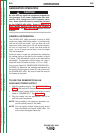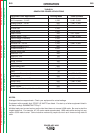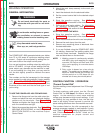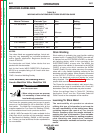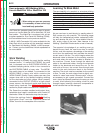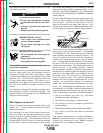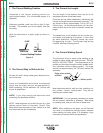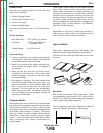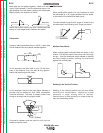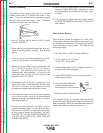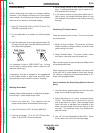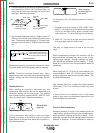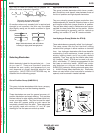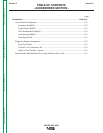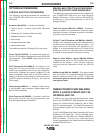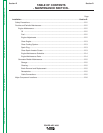
Return to Section TOC Return to Section TOC Return to Section TOC Return to Section TOC
Return to Master TOC Return to Master TOC Return to Master TOC Return to Master TOC
B-16
OPERATION
B-16
POWER-ARC 4000
Now weld the two plates together. Weld from left to
right (if right-handed). Point the electrode down in he
gap between the two plates, keeping the electrodes
slightly tilted in the direction of travel.
Watch the molten metal to be sure it distributes itself
evenly on both edges and in between the plates.
Penetration
Unless a weld penetrates close to 100%, a butt weld
will be weaker than the material welded together.
In this example, the total weld is only 1/2 the thick-
ness of the material; thus, the weld is only approxi-
mately half as strong as the metal.
In this example, the joint has been flame beveled or
ground prior to welding so that 100% penetration
could be achieved. The weld, if properly made, is as
strong or stronger than the original metal.
Successive passes must be used to build up butt
welds on heavier metal.
Fillet Welds
When welding fillet welds, it is very important to hold
the electrode at a 45° angle between the two sides,
or the metal will not distribute itself evenly.
To make it easier to get the 45° angle, it is best to put
the electrode in the holder at a 45° angle, as shown.
Multiple Pass Welds
Make multiple pass horizontal fillets as shown in the
sketch. Put the first bead in the corner with fairly high
current. Hold the electrode angle needed to deposit
the filler beads as shown putting the final bead
against the vertical plate.
Welding in the Vertical Position
Welding in the vertical position can be done either
vertical-up or vertical-down. Vertical-up is used
whenever a large, strong weld is desired.
Vertical-down is used primarily on sheet metal for
fast, low penetrating welds.
end view side view
20°
90°
Poor
1/2"
(12mm)
1/4"
(6mm)
1/4"
(6mm)
Good
60°
4
3
2
1
1/8" (3.2mm)
45°
45°
1
1
2
2
3
4



